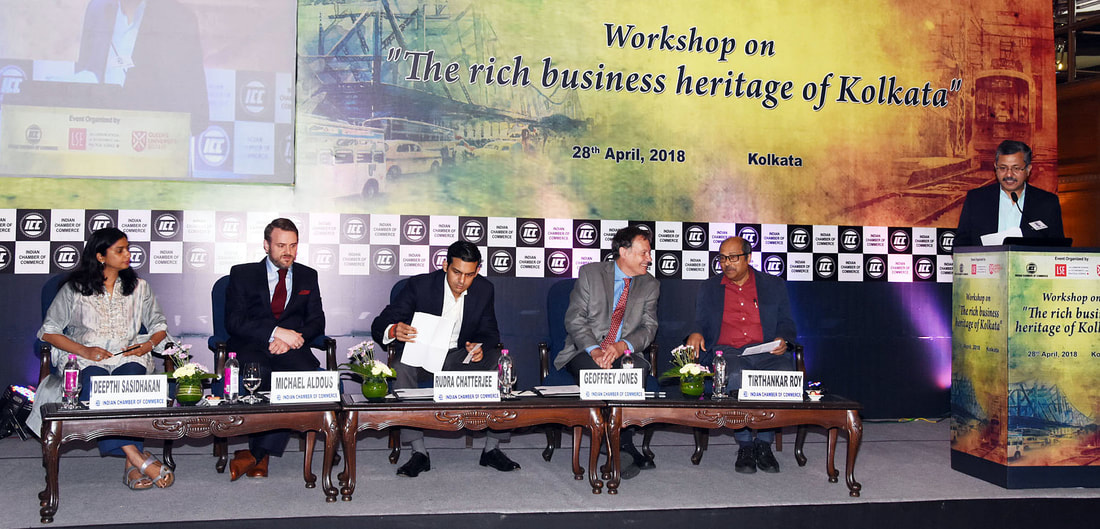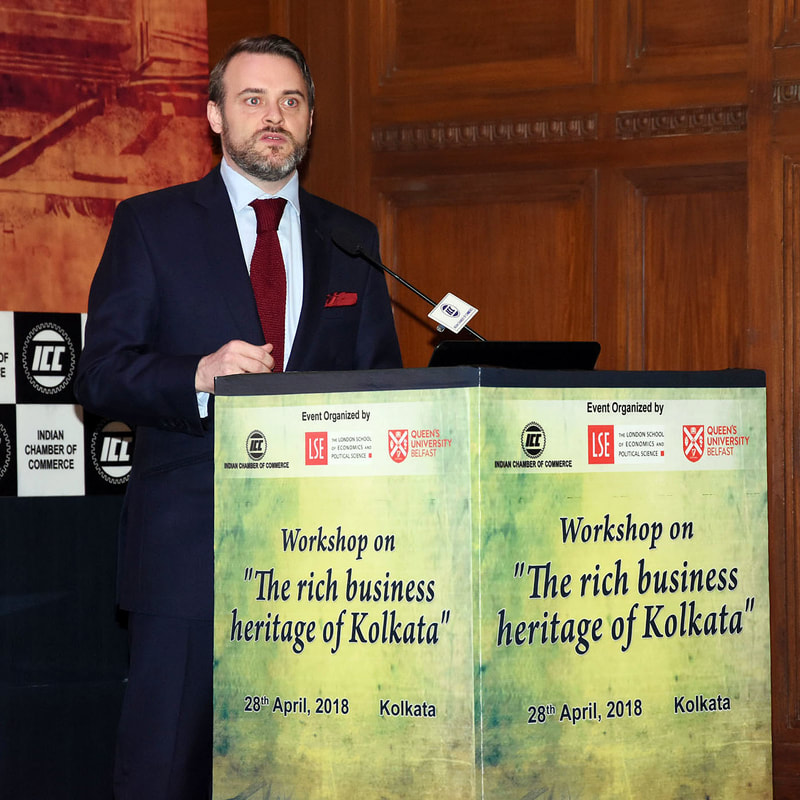Kolkata Business History Workshop 2018Date: 28 April 2018
Venue: Taj Bengal, Kolkata, India Event organised by: The Indian Chamber of Commerce, the London School of Economics, and Queen's University Belfast Not very long ago, Kolkata (or Calcutta) was one of Asia’s biggest hubs of corporate enterprise. It was home to the highly innovative managing agent system and firms that operated globally. These companies numbered in hundreds, and were engaged in a wide variety of activities including tea plantations, jute, paper, mining, engineering, inland transport, international shipping, banks, insurance, real estate, agriculture, and trade. Yet, relatively little is known about their operations, and little of the rich history of companies in the city has been explored. Business historians study firms, markets, and economic organisations in the past, because such studies help us understand two things better. First, all firms that last many years need to adapt to changing environments. Buying patterns change, politics and state policy change, markets mature, and booms and recessions happen. The study of firms in the long run shows better how the environment changed and how firms responded to these challenges and opportunities. Second, a perennial issue at the heart of business studies is how corporate governance is achieved, especially when companies are run by families, or small sets of people like the managing agents of the past. The rich business heritage of Kolkata offers exciting prospects for business historians. Systematic study of the corporate history of the city can provide crucial insights into these questions. Further, studying how the strategies, operations and organization of the Kolkata firms adapted to the dramatic changes over the course of the 20th century can yield a lot of insight into the city’s turbulent history. This one-day workshop is a conversation opportunity between business historians and businesspersons of Kolkata. It is an opportunity for business historians to discuss research themes in their fields, for archivists to discuss ongoing initiatives in preserving sources, and generally to consider the value of understanding Kolkata’s corporate past to help successfully navigate the future opportunities and challenges facing the city’s business community. |
Workshop Programme:
10:00 AM to 10:15 AM
Welcome
10:15 AM to 11:30 AM
Panel 1: Discussion & Debate: “Why is Business History important for Business?”
11:45 AM to 13:15 PM
Panel 2: Discussion & Debate: The importance of corporate memory and heritage for Kolkata business
13:15 PM to 13:30 PM
Concluding Remarks
10:00 AM to 10:15 AM
Welcome
- Tirthankar Roy, Professor of Economic History, LSE
- Rudra Chatterjee, Senior Vice President, ICC
10:15 AM to 11:30 AM
Panel 1: Discussion & Debate: “Why is Business History important for Business?”
- Shashwat Goenka, President, ICC
- Michael Aldous, Lecturer in Management, Queen’s University Belfast
- Deepthi Sasidharan, Director Eka Archiving Service, Former Chief Archivist at the Tata Central Archives
- Geoffrey Jones, Isidor Straus Professor of Business History, Harvard Business School
11:45 AM to 13:15 PM
Panel 2: Discussion & Debate: The importance of corporate memory and heritage for Kolkata business
- Rudra Chatterjee, Senior Vice President, ICC, Executive Director, Luxmi Tea Company
- Omkar Goswami Chairperson, Corporate and Economic Research Group Advisory
- Geoffrey Jones, Isidor Straus Professor of Business History, Harvard Business School
- Roopen Roy, Former Managing Director-Consulting, Deloitte Touche Tohmatsu India, and Past President, ICC
- Gaurav Swarup, Managing Director, Paharpur Cooling Towers, and Past President, ICC
13:15 PM to 13:30 PM
Concluding Remarks
- Michael Aldous, Lecturer in Management, Queen’s University Belfast
- Rudra Chatterjee, Senior Vice President, ICC


